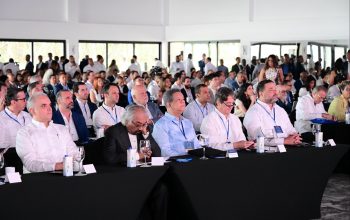news
Leonel Fernández Warns Against the Application of “Jus Soli” in the Dominican Republic
November 21, 2018
The former President of the Dominican Republic and President of the Global Foundation for Democracy and Development (GFDD/Funglode), Dr. Leonel Fernández, warned that if the Dominican Republic were to grant citizenship to all those born in its territory, the country would eventually lose its national identity.
"When we set forth the right of citizenship, it’s not a racist, xenophobic nor exclusive ideology; what we are talking about is
the survival of the country and the identity of the Dominican Republic,” he said.
Fernández made this statement during a conversation that took place with a senator from the Espaillat providence of the Dominican Republic, José Rafael Vargas, with whom the President presented the book "Años de avances. Escritos de Teoría y Acción.” The cultural event took place within the framework of the Miami Book Fair.
The former President explained that the United States implemented the jus soli principle
through a constitutional amendment following the civil war that abolished slavery. The amendment gauranteed citizenship to former slaves.
He upheld that, in contrast to the United States, in the Dominican Republic absolute and unconditional jus soli does not exist, but that the principle does apply to children of foreigners that reside legally in the country.
With regard to Haiti, the President of GFDD/Funglode mentioned that the
country’s constitution establishes that all people born of Haitian parents are considered Haitian.
Fernández stressed that the international community must get involved in the economic resurgence and development of Haiti.
As he addressed the economic situation in Haiti, Dr. Fernández raised the point that the Caribbean country had to pay a heavy price for having overthrown colonial power when it declared independence in 1804, following a
prolonged and devastating war.
He maintained that as a result, the international community isolated Haiti for many decades as to not encourage similar uprisings in other countries where slavery existed.
"I think Haiti had to pay a hefty price for having the boldness to abolish slavery,” said Fernández.
He stated that, in contrast to the Dominican Republic, which over the last 60 years has had economic growth above
the average in Latin America, Haiti has suffered chronic political instability which has resulted in hardship and despair.
When addressing the topic of disproportionate migration of Haitians to the Dominican Republic, the former President of the Dominican Republic stated that the situation will not be resolved by deporting Haitians nor by constructing a wall on the border, but through the economic development of Haiti.
"The Dominican Republic
has to be a champion of the development and prosperity of Haiti,” he said.
Dr. Fernández mentioned that following the earthquake that devastated Haiti on January 12, 2010, the Dominican Republic built a university in the country based on the logic that education is the foundation for development and prosperity.
Fernández is in the midst of a work trip in the United States that begins in Miami, Florida, where he put his book into circulation.
The GFDD President also got to see the Miami Brightline train, which he rode to Fort Lauderdale, where he had a meeting with the president of Lynn University.
Following his time in Florida, Dr. Fernández will head to Washington DC, where he will present to the Permanent Council of the Organization of American States (OAS) a final report on the elections recently held in Mexico. Fernández served as the head of the OAS Electoral Observation Mission in that electoral
process.







